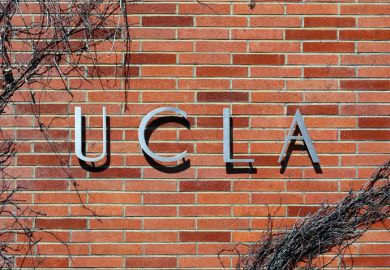A National Union of Students report finds “a clear link between class and poverty in tertiary education”, urging the government’s review of higher and further education funding in England to create a minimum living income for students.
The NUS Poverty Commission – made up of 12 commissioners drawn from the NUS, students’ unions, charities and campaigning groups – looked at barriers to “accessing and excelling” for working-class students in post-16 education.
The report, which comes as a government review looks at post-18 education funding, says that evidence submitted to it “demonstrated a clear link between class and poverty in tertiary education.
“Further, the evidence showed that – in different ways, and not always intentionally – the result of this link is a ‘poverty premium’ endemic to further and higher education, which means that students from working-class backgrounds often pay higher costs in order to access post-16 education as a consequence of class and poverty.
“This ranged from direct costs such as higher interest charges on student loans or commercial debt to indirect costs such as higher transport or accommodation costs arising from having fewer opportunities and choices than better-off students.”
Among other key findings are that working-class students are most likely to be employed in a job that requires more than the recommended 15 hours per week while studying.
Among the report’s recommendations are that the government’s review “should create a minimum living income for students across further and higher education”. The report also says that the government “must reinstate grant funding across further and higher education, including maintenance grants for undergraduate students, education maintenance allowance for young further education students and NHS bursaries for healthcare students at significantly improved rates”.
Maddalaine Ansell, University Alliance chief executive, said: “Too often, student poverty has been missing from debates about higher education funding. The NUS Poverty Commission report is an important corrective to this, highlighting the challenges which many students – particularly those from working-class backgrounds or studying part-time – face in accessing and succeeding in post-16 education.
“While there has been progress in widening participation, this evidence suggests that, for many, the day-to-day challenges of meeting basic needs have become greater in recent years.”
Dame Janet Beer, Universities UK president and University of Liverpool vice-chancellor, said: “Universities UK supports the call to reinstate government maintenance grants, targeted to those students who need them the most.
“The government’s switch in England from maintenance grants to loans had a more significant impact on those from more disadvantaged backgrounds, who need to take out higher loans for living costs and so have higher lifetime loan repayments.”
She added: “We agree also that there should be greater support for those who wish to study more flexibly, and for whom full-time study is not the preferred option. This would help also to reduce barriers.”
Register to continue
Why register?
- Registration is free and only takes a moment
- Once registered, you can read 3 articles a month
- Sign up for our newsletter
Subscribe
Or subscribe for unlimited access to:
- Unlimited access to news, views, insights & reviews
- Digital editions
- Digital access to THE’s university and college rankings analysis
Already registered or a current subscriber? Login






